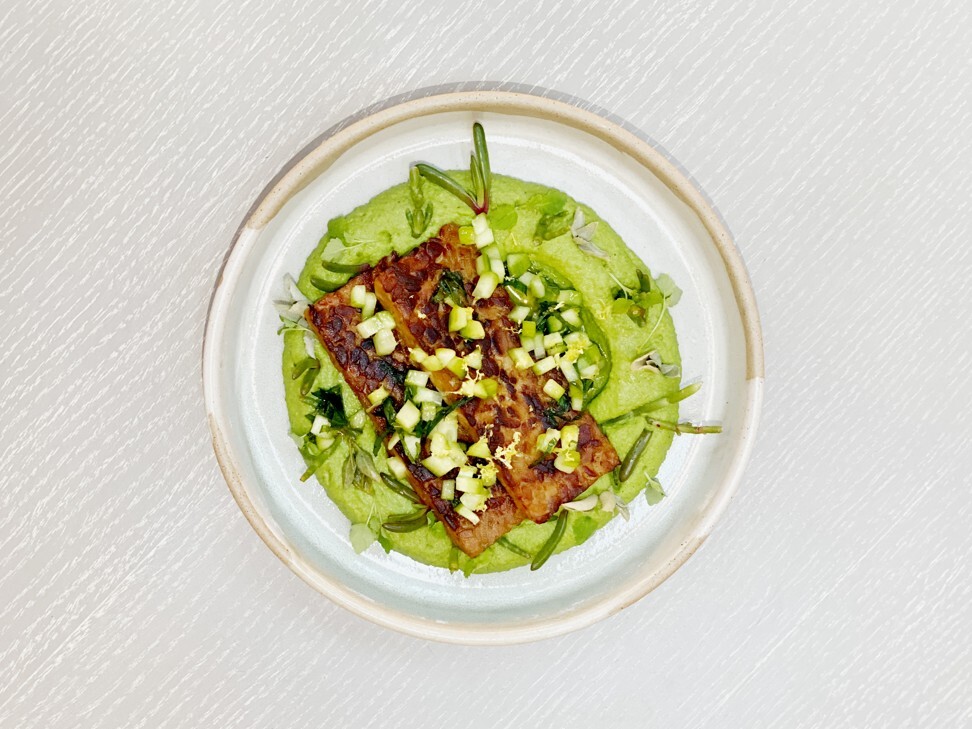
Going vegetarian: why restaurants and bars are meat-free for a year at Asia-Pacific hospitality group Ovolo Hotels
- The Ovolo chain, with hotels in Australia and Hong Kong, already does things differently, such as not charging for extras like the minibar or Wi-fi
- Now the whole group is going vegetarian in all its bars and restaurants for 365 days
Ovolo Hotels has become the first hotel group to go completely vegetarian across all its restaurants, bars and food services.
“We do the kind of stuff no one else does,” says the group’s CEO, Girish Jhunjhnuwala, who prides himself on being a disrupter. “We have redefined the market.”
The group operates eight properties, two in Hong Kong and six in Australia. When he founded Ovolo in 2010, Jhunjhnuwala was determined to address the issues that irked him about hotel stays. Top of the list were the add-ons charged for everything from Wi-fi to the minibar.
“For us everything is free. You can take what you like from the minibar, we don’t nickel-and-dime you,” says Jhunjhnuwala, who was born and raised in Hong Kong.

Launched on October 1 – World Vegetarian Day – the group’s “Year of the Veg” hasn’t come totally out of the blue. In March 2018, American chef Matthew Kenney known for his plant-based cooking, opened the Alibi Bar & Kitchen at the Ovolo Woolloomooloo, one of the group’s two Sydney properties. And in early 2019, Veda opened in Ovolo Central, becoming Hong Kong’s first vegetarian hotel restaurant.
On a Thursday evening last year, Jhunjhnuwala noticed a large number of people in the lobby of the Woolloomooloo hotel and asked what was going on. The general manager explained that on weekends, they had two sittings at the Alibi Bar & Kitchen, but that evening they were having to hold three.
The ingenious ways Buddhist vegetarian food imitates meat
“That’s when I knew we were on the right track; there were three seatings and people were spilling over from the restaurant into the lobby,” says Jhunjhnuwala. If a vegetarian restaurant was proving so popular in Australia – where the per capita consumption of red-meat is among the highest in the world – Jhunjhnuwala thought, why not take that idea and run with it?
“Why don’t we do something different and make the whole group vegetarian for a whole year? We’re going to do it for 365 days and hope that it continues,” says Jhunjhnuwala, who is himself a vegetarian. “We’ll see how it goes.”
Komune, the lively all-day dining restaurant at Hong Kong’s Ovolo Southside, joins the Monster Kitchen & Bar (Ovolo Nishi, Canberra), Za Za Ta (Ovolo The Valley, Brisbane) and Mr Percy (Ovolo 1888 Darling Harbour, Sydney) in switching over to a 100 per cent vegetarian menu.


“We want to be conscious about what we’re consuming and practise sustainability as much as we can because we believe this can have an enormous impact on the environment and humanity at large,” says Jhunjhnuwala. To that end, and as far as possible, ingredients will be sourced locally or even grown on site. At the Woolloomooloo property, this will happen on the rooftop, and in Brisbane, on land near the hotel.
Juan Gimenez, Ovolo’s Hong Kong food and beverage manager, admits sourcing locally is not easy in Hong Kong and most ingredients are imported from China and elsewhere. Whenever possible, though, he buys vegetables from organic farms in the New Territories.
Gimenez is enthusiastic about the move to vegetarian food. “We want to create food that is hearty and satisfying. I love that we are not tied to a particular cuisine. The overarching concept is vegetarian, but we can pick cuisines from different parts of the world and that brings a lot of creativity,” says Gimenez, who is from Argentina.

Jhunjhnuwala believes that Hong Kong and Australia will catch up with London and New York, which are far more accommodating of vegetarians.
“My meat-loving friends have eaten at Veda and not even realised that they didn’t have meat,” says Jhunjhnuwala. “A lot of people have become more health conscious recently [because of coronavirus] so I think there will be even more interest in vegetarian food.”
Although Ovolo is the first hotel group to go completely vegetarian, stand-alone properties have recently made the leap. Last year, Saorsa 1875, in Perthshire, Scotland, became Britain’s first 100 per cent vegan hotel. And earlier that year, Hilton London Bankside unveiled a fully vegan suite in collaboration with design studio Bompas & Parr and The Vegan Society.

Thailand’s Away Chiang Mai Thapae Resort and the Baby Elephant Boutique Hotel, in Siem Reap, Cambodia, are among a number of properties in Asia recommended for vegetarian or vegan travellers.
According to research company Roy Morgan, about 12.1 per cent of Australians – that’s nearly 2.5 million people – were on mostly vegetarian diets in 2019, an increase from 11.4 per cent in 2014.
As vegetarian – and vegan – diets become less marginal, we can expect more hotels to broaden their plant-based options and perhaps even join Ovolo in making the leap to “full veg”.

